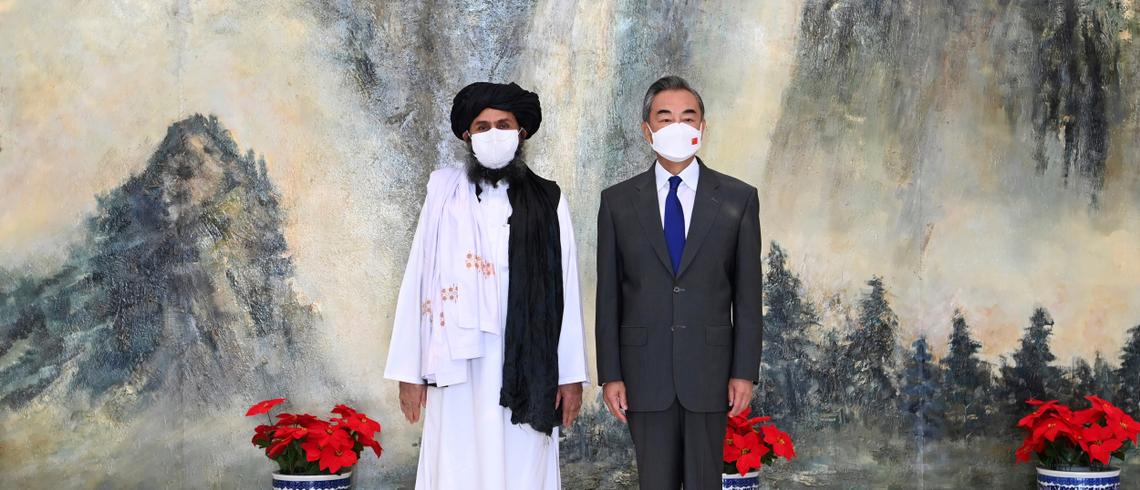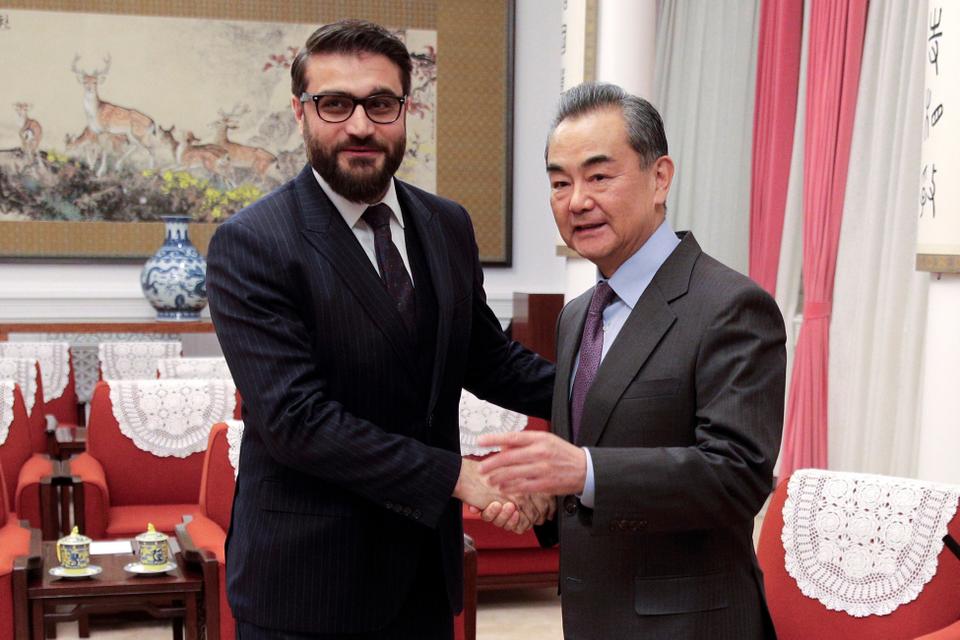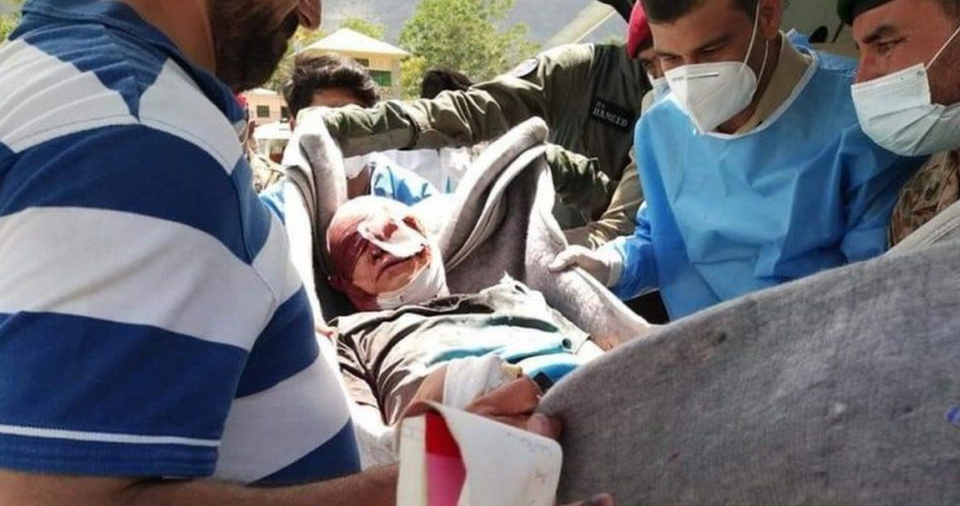AquaCityBoy
Veteran
In 3 years no one will care during the 2024 election. Better to get it over with now.
Nobody will care about Afghanistan but they will care about Hunter Biden.

In 3 years no one will care during the 2024 election. Better to get it over with now.

yeah, if news about Hunter keeps coming out. And it does.Nobody will care about Afghanistan but they will care about Hunter Biden.
And then do what?How's this an L?
The USA could retake Afghanistan in 2 months if they wanted to. Just like the first time.
Hand out more government contracts to campaign donorsAnd then do what?




This is a massive fukk you to the Chinese lowkey
Opinion | The Taliban’s Afghan Advance Spells Trouble for Pakistan and China
The Taliban’s Afghan Advance Spells Trouble for Pakistan and China
Instability threatens the government in Islamabad and Beijing’s economic program in Central Asia.
By Kamran Bokhari
Aug. 13, 2021 2:53 pm ET

Taliban fighters in Kandahar, Afghanistan, Aug. 13.
Photo: -/Agence France-Presse/Getty Images
The Taliban are taking over city after city in Afghanistan at a stunning speed. But as the U.S. found in 2001, it’s one thing to topple a regime, another to set up a stable new one. Even if the Taliban can negotiate a formal return to power, the country will remain chaotic for a long time, with serious implications for the region, especially for Pakistan and China—in different but geopolitically significant ways.
The impact will be most immediate for Pakistan, which is already feeling it. In the past two decades the Taliban have gone from being a proxy of Islamabad to a threat. When Washington toppled the Taliban in late 2001, Pakistan saw it as a major foreign-policy loss even though it cooperated with the U.S. Islamabad continued to view the Afghan jihadist movement as an ally even in 2007-14, when it faced a major insurgency on its own soil from the Pakistani Taliban rebels. For more than a decade the “good vs. bad Taliban” narrative dominated the national conversation, distinguishing between those who fought in Afghanistan and those who sought to topple the Pakistani state.
It wasn’t until early last month that the country’s top two generals—the army chief and the head of Inter-Services Intelligence—acknowledged, in a rare briefing to opposition members of Parliament, that the Afghan and Pakistani Taliban were “two faces of the same coin.” These remarks underscore that the Pakistani elite now fears its erstwhile proxies because their own country has been deeply penetrated by the Taliban ideology.
The Taliban comeback in Afghanistan will galvanize many Islamist actors in Pakistan to emulate the Afghan jihadist movement. It will be a huge challenge for a terribly weakened Islamic Republic of Pakistan to sustain itself with an Islamic emirate next door. Only a few years ago, and at great cost in blood and treasure, was Islamabad able to take back large swathes of its territory near the Afghan border from Taliban rebels. Those gains are at risk of being lost again.
Since the end of major military operations against Taliban insurgents in 2015, Pakistan has been increasingly dependent on China for its economic recovery. The biggest project of China’s Belt and Road Initiative is the China-Pakistan Economic Corridor, in which Beijing has invested tens of billions of dollars. The fate of CPEC has increasingly come into question, especially in recent weeks with growing attacks, likely by Pakistani Taliban, targeting Chinese workers in the country. From Beijing’s point of view, a spillover of insecurity from Afghanistan will undermine its investments in Pakistan.
But a post-American Afghanistan also threatens Chinese interests outside Pakistan. For many years Beijing benefited from the U.S. military presence in Afghanistan. China pushed ahead with its Belt and Road plans in Central Asia because the U.S. was ensuring that violence was contained within Afghanistan. In March Beijing announced that it would invest as much as $400 billion in Iran over 25 years in anticipation that a new nuclear deal would open Iran for business.
The U.S. decision to withdraw from Afghanistan has plunged China’s business plans in the region into uncertainty. Each of these Chinese projects is at risk of the violence radiating out of Afghanistan. And China isn’t alone in scrambling for solutions. This week Russian troops conducted joint exercises with forces from Tajikistan and Uzbekistan on their borders with Afghanistan. But China has far more at stake than Russia, and unlike the Kremlin the People’s Liberation Army has never deployed a multidivisional force to maintain security beyond its borders.
China doesn’t have good options. It will work with Pakistan, Iran, Russia and the Central Asian nations to limit the disruption of its economic interests by the Afghan chaos. But each of these nations will be struggling to protect its own interests. This is why we see the Chinese enhancing their diplomatic ties with the Taliban. On Thursday U.S. News reported that China is prepared to recognize a Taliban regime even if it takes the country over militarily. This is in sharp contrast with the position of most other international and regional players, which have made clear that they would recognize a Taliban-dominated government only if it is formed as part of a negotiated settlement.
As we have seen in so many situations during the past two decades in places like Afghanistan, Iraq, Yemen and Libya, regime change is a terribly messy process. Weak regimes can be toppled; replacing them is the hard part. It is only a matter of time before the Afghan state collapses, unleashing chaos that will spill beyond its borders. All of Afghanistan’s neighbors will be affected to varying degrees, but Pakistan and China have the most to lose.
Mr. Bokhari is director of analytical development at the Newlines Institute for Strategy and Policy and a national-security and foreign-policy specialist at the University of Ottawa’s Professional Development Institute.
nah, China has never actually had to fight and secure territory.Is it? It’d probably be much easier for China to deal with the Taliban than it would’ve been to deal with an American backed regime.


yeah, if news about Hunter keeps coming out. And it does.
On the flip side. I guarantee most of you dont remember shyt about Trump's first year in office.
 The president's crackhead son being a fukk up
The president's crackhead son being a fukk up
Do you think American voters are good faith actors?Leaving Afghanistan is what is (rightly or wrongly) seen as a foreign policy disasterThe president's crackhead son being a fukk up
I wonder what voters will care about more in 2024?
nah, China has never actually had to fight and secure territory.
All they've done around the world is run in after the USA secured a situation then tried to hand out goodies then claimed they were better than the alternative with their unique propaganda.
Well thats over now so China has a major problem on their western flank now
All those muslims they tried suppressing? Yeah... good luck!

Do you think American voters are good faith actors?
Doesn't change anything I said.They are taking the country back relatively peacefully
They're paying off officials and rolling into cities without firing a shot
Also, the Taliban have controlled most of the country for years. Even when we had 150,000 troops.
This is a failure that everyone has seen coming. Hell, even Biden in 2009 was against any troops surges telling Obama not to do it.
fukk ChinaChina simply bet on the the side who won

They are a factionalist terrorist group that has no history of practical governing skills. Why should the Taliban be recognized?Why not?

China doesn't want the Taliban to potentially form an alliance with the Uyghurs and have there be a Taliban Uyghur splinter group in China. That's why the CCP is trying to be buddy-buddy with the Taliban.Is it? It’d probably be much easier for China to deal with the Taliban than it would’ve been to deal with an American backed regime.
Yeah, I think that’s a lot of hot air and wishful thinking on your part.
China doesn't want the Taliban to potentially form an alliance with the Uyghurs and have there be a Taliban Uyghur splinter group in China. That's why the CCP is trying to be buddy-buddy with the Taliban.



